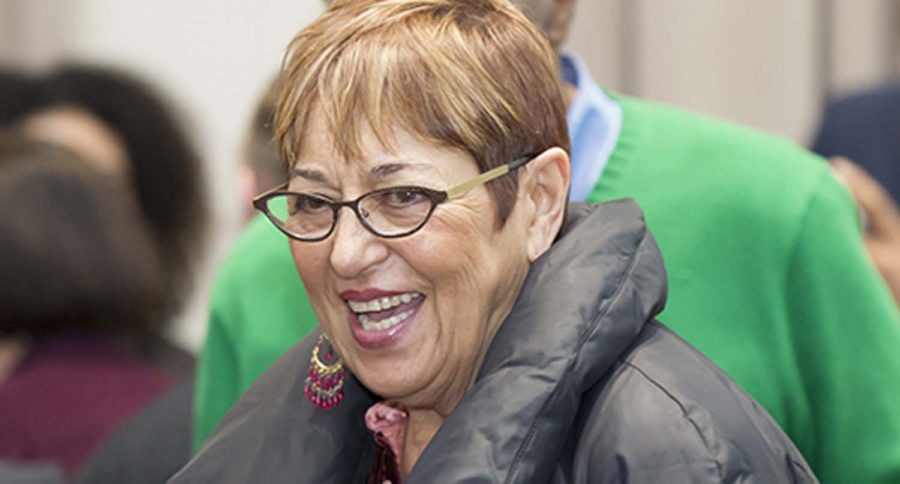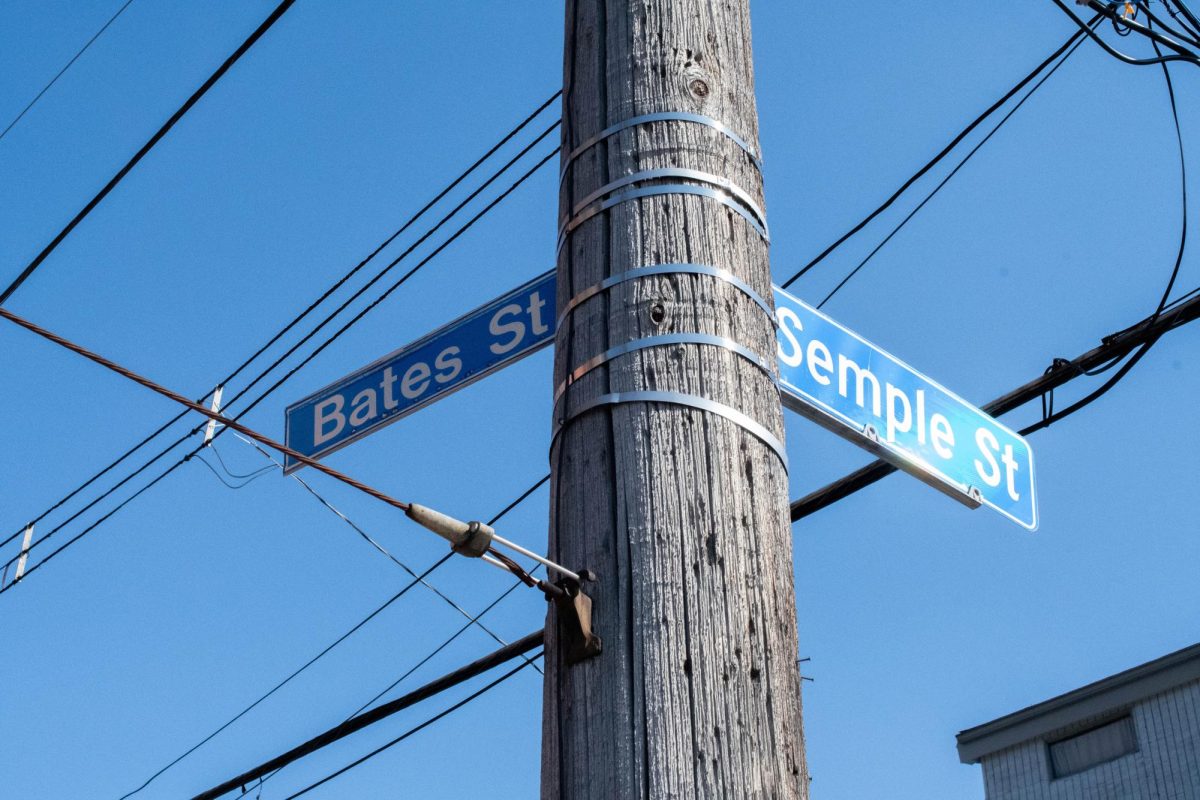Poet Toi Derricotte digs deep into her past for her latest book
Image via University of Pittsburgh
Toi Derricotte, former professor at Pitt, currently stands as one of five finalists for the 2019 National Book Award for Poetry.
October 31, 2019
Toi Derricotte is no stranger to raw honesty. The former Pitt professor, now professor emeritus, has been writing poetry for more than 40 years and doesn’t plan on slowing down.
Her most recent book, “‘I’: New and Selected Poems,” published by the University of Pittsburgh Press, is one of the five finalists for the 2019 National Book Award for Poetry. The book is a collection of 39 new poems and selections from four of Derricotte’s previous books dating back to her 1978 debut. Derricotte said she felt gratitude upon hearing her nomination.
“It meant so much to me because it represents 60 years of my life so it really validates that work,” she said. “I feel deeply honored. I feel deeply validated.”
“I” encompasses a 41-year window in Derricotte’s life and a wide range of subject matters. The poems range from the minute to the meta — small observations of seemingly mundane everyday moments to epic ruminations on identity and life. A lot of the new poems even take place in University of Pittsburgh locations, such as a bathroom stall on the third floor of the Cathedral of Learning.
Prompted by her editor Ed Ochester of the University of Pittsburgh Press to create a collective work, Derricotte began revisiting her previous books, leaving sticky notes on pages with poems she enjoyed.
“My editor told me to choose the poems I loved and leave everything else out,” she said. “And so that’s what I did.”
Although the process of choosing poems for “I” may have been an easy and enjoyable task, originally writing many of the poems proved much more difficult. Derricotte’s poetry is characterized by a fearless level of candor — even when the subject matter turns toward her own childhood.
Growing up in Detroit, Derricotte lived with an abusive father who regularly beat her. Derricotte doesn’t try to hide the realities of her traumatic childhood in her poetry. In fact, her 2011 book, “The Undertaker’s Daughter,” deals specifically with her relationship with her father.
Although the poems in “I” taken from “The Undertaker’s Daughter” remain the same, Derricotte made one addition — an introductory poem to the section titled “Apology to the Reader.” Derricotte wrote the apology at the time she was making “The Undertaker’s Daughter” because of the heavy nature of the book but said she later scrapped it because she felt its inclusion would take away from the actual poems.
“I thought, you don’t apologize — writers aren’t supposed to apologize,” she said. “But when I published the whole collection, I thought that that apology needs to be in there,” she said. “This is what I need to do to do the kind of work I need to do. I hope I’m making art out of it.”
After graduating from school in Detroit, Derricotte received her B.A. in Special Education from Wayne State University in 1965. She then moved to the East Coast, where she took up a job as a teacher in New Jersey. Derricotte said she worked in a “poets in the school program,” where she taught poetry to students grades K through 12 at a school for a week. According to Derricotte, this job was where she truly learned the art of teaching.
“When you’re teaching kids, you have to know what you’re doing, because you can’t just say ‘Go write something and do your homework,’” she said. “You have to really know what you’re doing to get kids to love writing.”
Living in North New Jersey provided Derricotte with quick access to New York City, a literary hotbed in the ’70s. After participating in many writing workshops and training herself to write every day, Derricotte published her first book, “The Empress of the Death House,” in 1978. She later earned her M.A. in English literature from New York University in 1984. However, her success was not without its difficulties. Derricotte said she was often the only African American person in graduate programs.
“When I was in graduate school in 1985, and I asked why we had never read an African American poet my graduate professor said ‘We don’t go down that low,’” she said. “So, we weren’t reading any African American writers, and if you were an African American poet there was just no way you could have some sense of validation.”
It was this lack of a community for African American poets that inspired Derricotte to found Cave Canem along with fellow poet Cornelius Eady in 1996. Cave Canem — meaning “beware the dog” in Latin — is a non-profit organization devoted to creating a nurturing space for African American poets to cultivate their artistic skills.
One year after Derricotte founded Cave Canem, she released her fourth collection of poetry, “Tender.” “Tender” focused on the effects of racism and how Derricotte’s position as a light-skinned African American person changed her experience of discrimination and prejudice within white and black social circles. Twenty-eight poems from “Tender” appear in “I,” each one examining racism with an unflinching eye.
Derricotte frequently tackled controversial and taboo topics in “Tender,” something that she hoped to allow other African American poets to do in Cave Canem’s unrestrictive environment.
“I wanted there to be a place where African American poets could write great poetry and not have those pressures on them,” she said. “Where they could have a conversation where they didn’t have to double-think what they were gonna talk about.”
The organization consists of a variety of workshops led by African American poets in which fellows’ poems are critiqued and analyzed. Acceptance into Cave Canem is dependent upon the strength of the applicant’s poetry.
Since its inception, Cave Canem’s fellows have gone on to be Poet Laureates of the United States and Pulitzer Prize for Poetry and National Book Award winners. Douglas Kearney, a poet and professor at the California Institute for the Arts, got his start as a fellow of Cave Canem from 2000 to 2002. He said his time at Cave Canem was educationally enriching.
“For me, it was a space where I began to learn a lot about a lot of different poetic techniques and engaging in hardcore questions about the range of poetics,” he said. “That space that Toi was instrumental in creating was an essential of my development as a poet.”
Some of Cave Canem’s fellows have even made their way over to Pitt, as is the case with Yona Harvey, now an assistant professor in the English department, who participated in Cave Canem in its founding year, 1996, as well as in 1997 and 1999.
“The unique thing about going to Cave Canem was that suddenly we encountered these poets who were in spaces like Pitt and other schools where they were in the minority,” she said.
For Derricotte, carving out spaces for African American poets that she didn’t have as a young adult is essential to poetry’s survival. Now, as her latest work is nominated for a prestigious award in poetry, she said she believes with all her heart in the power of writing, something that come through whenever she speaks.
“I believe writing changes the world,” she said. “It’s not just somebody telling you what to think — it’s your way of working through what’s important. And that’s why it’s powerful, you see, because it belongs to the person who’s doing that work.”



